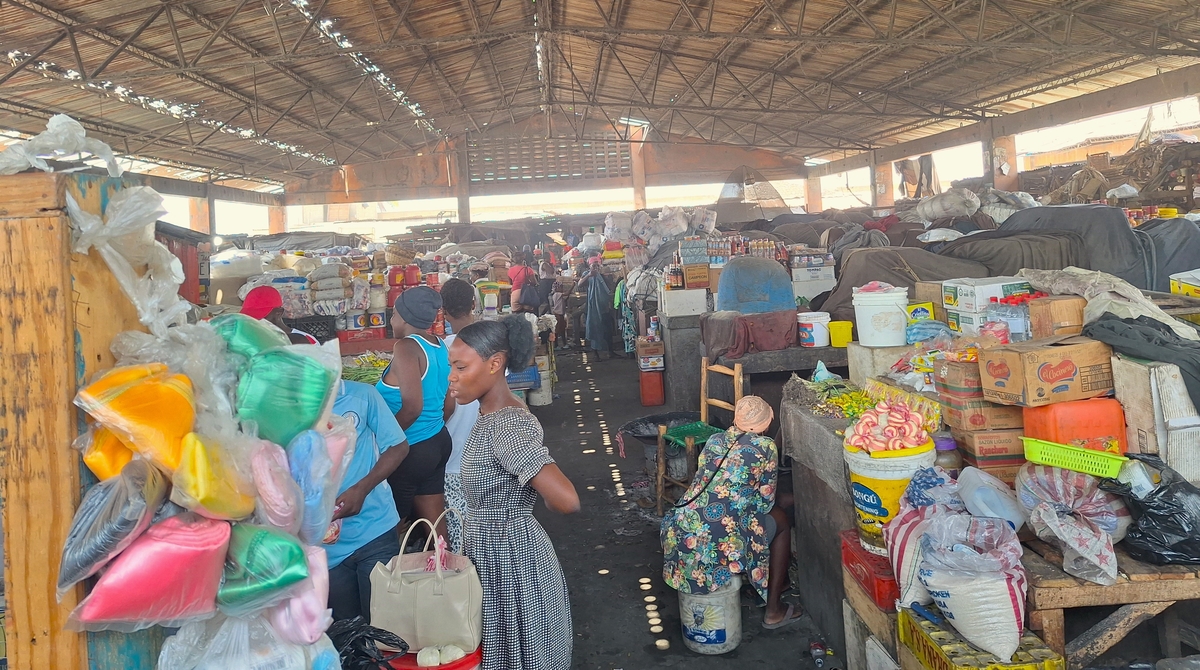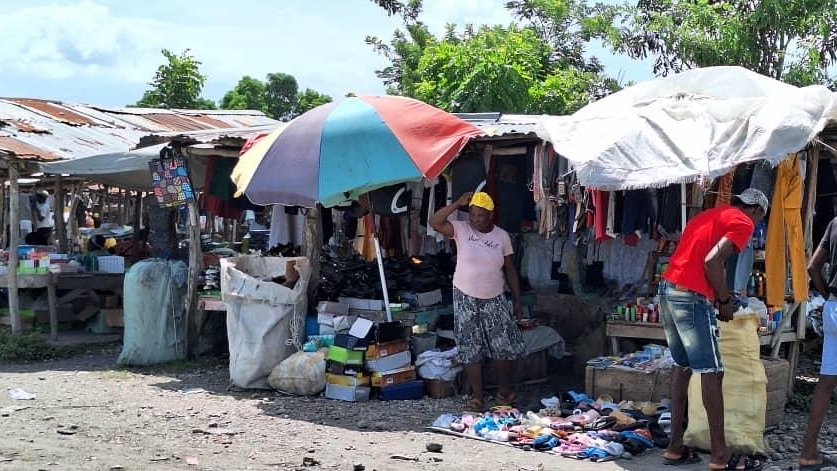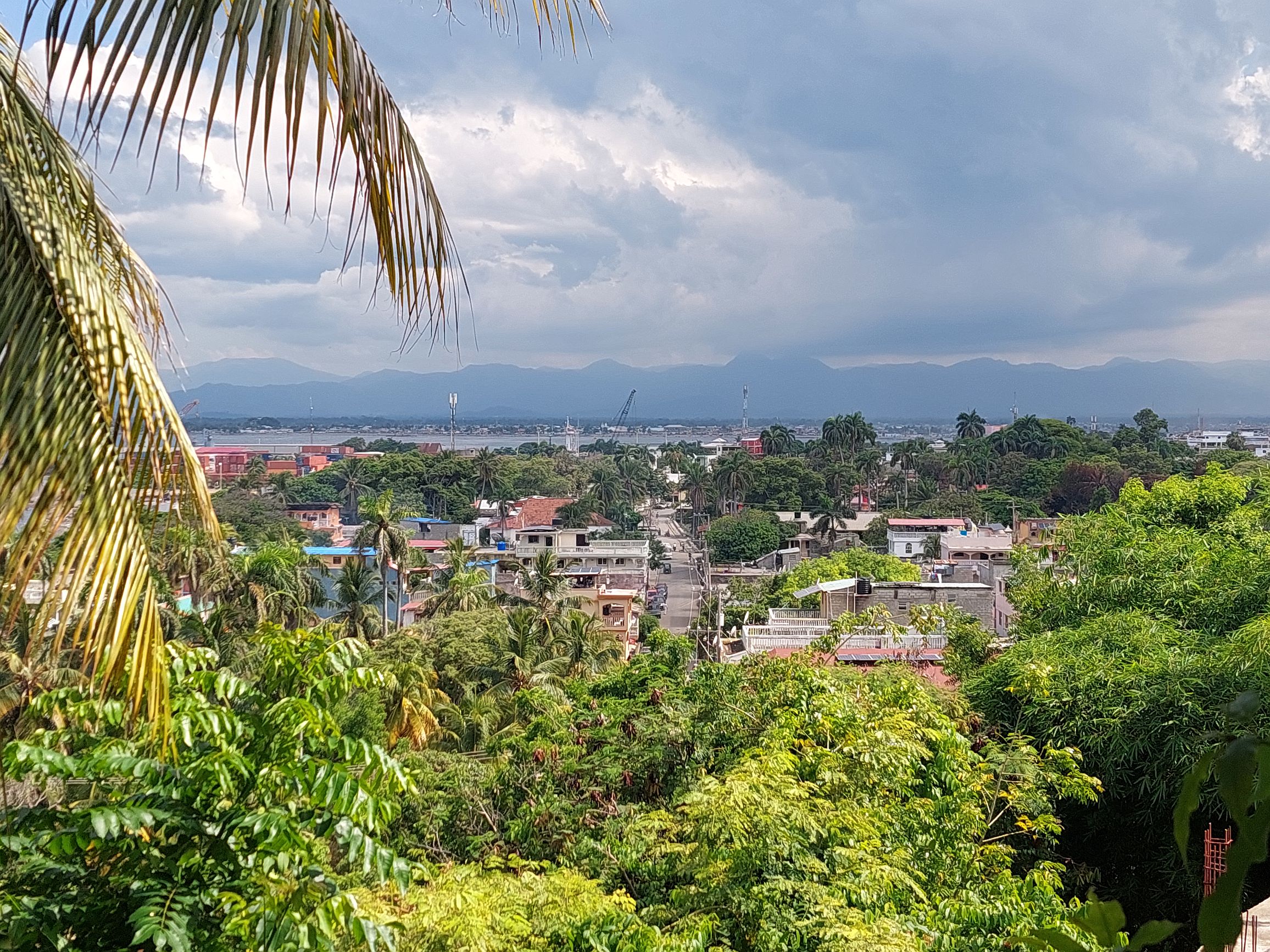Focus Areas
Public markets are multi-functional spaces that play a vital role in the local economy and help foster social cohesion. They are the main focus of activities implemented under the LAVIL programme.
Its activities target several areas:
- Promoting the sustainable management of public markets
- Stimulating local solutions for solid waste
- Co-creating spaces for multi-stakeholder dialogue and consensus-building
- Increasing capacities within selected municipal governments
Two markets are participating in the initial phase of the programme: Marché Pont Neuf in Cap-Haïtien and Marché Rival in Les Cayes. The two markets were selected for their accessibility to traders and visitors, effective management system, potential for growth, number of active traders, and gender distribution.

Marché Pont Neuf in Cap-Haïtien
Located in the centre of Cap-Haïtien, the Pont Neuf market is open daily from 5 am to 7 pm. Opening hours are extended on Tuesdays and Saturdays, when the market attracts even more visitors and traders. With both formal and informal sections, the market hosts over 2,000 traders selling mostly local products, including vegetables, fruits, cleaning supplies, clothing, and jewelry. It is largely run by the Madan Saras, Haitian women traders who transport and distribute agricultural products from rural areas to cities. They are a vital link between farmers and city dwellers and essential to the informal economy.

Marché Rival in Les Cayes
The Rival market is a place that most vendors often travel more than 20 km on foot to reach, while others use different means of transportation. As a result, there are no fixed opening hours. Some traders can arrive as early as 4 am to start their activities, and others a bit later. Similarly, the closing time is not fixed; it entirely depends on the day's sales. If products sell quickly, sellers can leave early; otherwise, they can stay until 6 pm to sell their goods. The market operates on Wednesdays and Saturdays, attracting about 3,000 visitors each day. It is widely known as a key supplier of corn, cattle, fruits, and vegetables.

Approach
LAVIL’s approach consists of two components that together create an iterative process based on knowledge and experimentation:
1. Diagnostics
This component involves collecting primary and secondary data to provide a comprehensive understanding of the markets and the capacities of local governments to fulfill their roles in managing these spaces.
The data analyses a range of issues around local governance, citizenship, essential services (with particular attention to waste management), economy, and environment. It is collected through surveys, focus groups, interviews with key informants, desk research, and participation in thematic roundtables.
The results and insights of the diagnostics are discussed with key local stakeholders, including market vendors, managers, municipal officials, and representatives. These discussions form the basis for identifying future activities through a participatory approach.
This process ensures that the interventions conducted through LAVIL are well-coordinated, effectively address identified challenges, and align with local development objectives.
2. Pilots
Once the diagnostics are complete and the main activities agreed upon, pilot initiatives are designed and implemented that focus on:
- Increasing local capacities
- Strengthening communities and facilitating dialogue and consensus-building
- Improving the delivery of municipal services with a focus on markets and solid waste management

